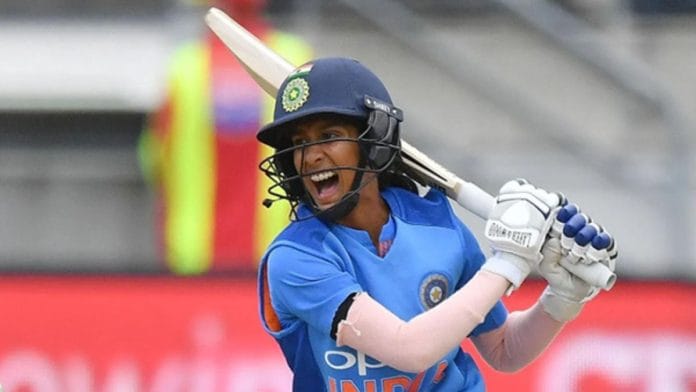New Delhi: Jemimah Jessica Rodrigues’s 127 not-out did not just steer India into the final of the Women’s World Cup, but also highlighted that in the high-pressure world of sports, victories are often concealed by invisible battles of mental health.
When Rodrigues walked up to the mic at the post-match presentation, she said, “I was going through a lot of anxiety. I cried almost every day on this tour. But I want people to know — it’s okay to ask for help.”
“I will be very vulnerable here, because I know if someone is watching, this might be going through the same thing. Nobody likes to talk about their weakness,” added Rodrigues.
These words carry a powerful reminder that mental health struggles are real and deserve to be treated as such. When an athlete or a cultural icon speaks openly about these challenges, it goes beyond personal healing; it becomes an act of public good, breaking stigma and inspiring others to seek help.
This innings against Australia for Rodrigues was even more special, as she was struggling to get big runs in the tournament. She was also dropped from the playing XI earlier in the tournament.
In the presentation, she further added, “When you are dropped, you have a lot of doubts because I always want to contribute to the team. That really hit me … But sometimes all you need to do is just hang in there and things fall into place.”
After her statements, a large number of people throughout the world came in support of her. Dr Samara Afzal, a former Cricketer from Wales, posted “Digesting that Jemimah Rodrigues knock & interview… she spoke so bravely about her mental health. So many athletes go through this but don’t talk about it. Real strength includes vulnerability. Hoping this will help break the stigma & push for better support for athletes.”
Athletes and mental health
There have been many incidents when athletes have come out in public about their mental health. Simone Biles, one of the most decorated gymnasts, stepped back from the final of the Tokyo Olympics to protect her mental health. Naomi Osaka withdrew from the French Open to prioritise therapy over press conferences.
Closer home, Indian athletes like Vinesh Phogat, a wrestler and Robin Uthappa, a cricketer, have also been candid about sharing their battles with anxiety and self-doubt.
Vinesh Phogat, after losing out on a gold medal in the Olympics, said, “I don’t know when I will return to the mat. Maybe I won’t. I feel I was better off with that broken leg. I had something to correct. Now my body is not broken, but I’m truly broken.”
It is evident that each of these stories reminds us that athletes are not just performers, but people navigating immense expectations and invisible pressures.
In the past, mental health was seen as a sign of weakness, as athletes were expected to be mentally “tough,” and acknowledging stress, anxiety, or depression was viewed as a failure of character or discipline. This stigma was compounded by the lack of an institutional support system, like psychologists, counsellors, or recovery programs, to help athletes with their mental well-being.
Also read: Over five decades, 300 films—Asrani outlasted noise of stardom through character acting
Why awareness matters?
I grew up in a home where mental health was part of daily life. My father lives with bipolar disorder. It taught me early that mental well-being is just as important as physical health. My mother’s strength and empathy held our family together, helping us face challenges with dignity.
Just as Rodrigues found strength in being vulnerable and seeking support, I, too have witnessed how empathy and openness can heal and hold people together.
Her words reminded us that when we talk about mental health, whether on a world stage or within our own homes, we create space for understanding, compassion, and change.
Vaibhav Pant is a TPSJ alum, currently interning with ThePrint.
(Edited by Saptak Datta)






